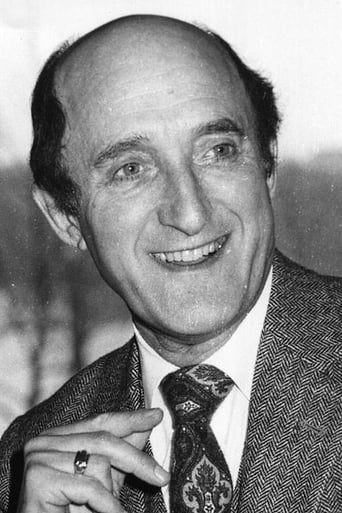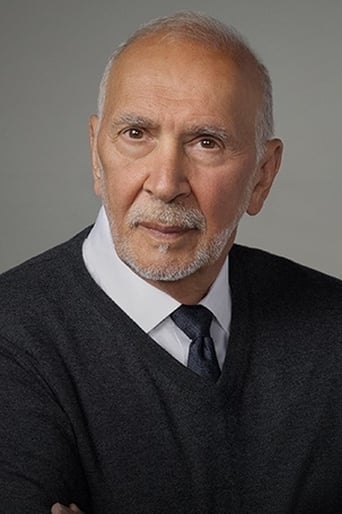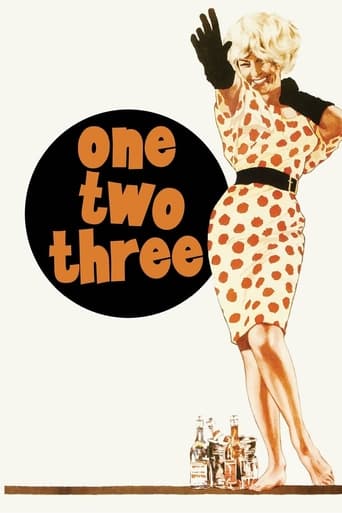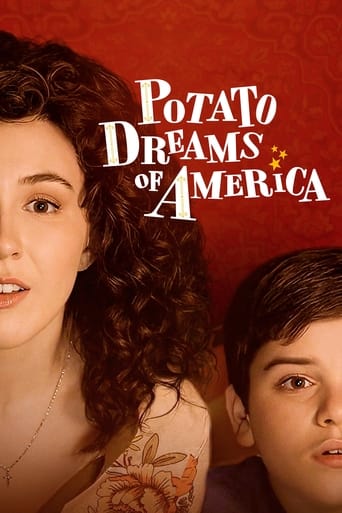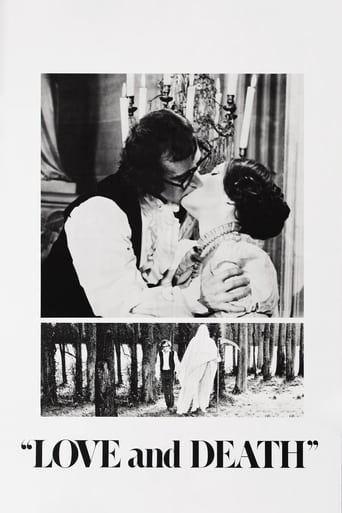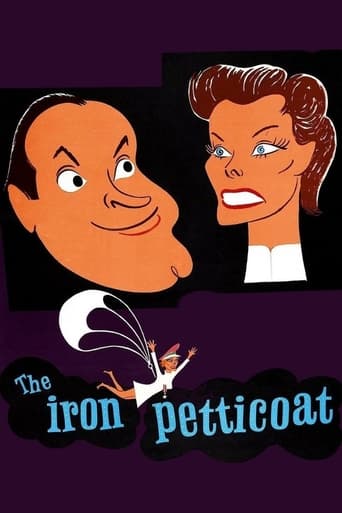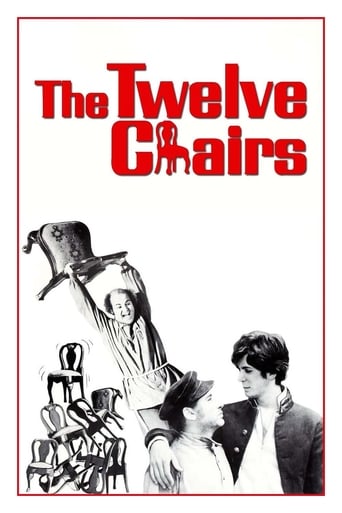

The Twelve Chairs (1970)
In 1920s Soviet Russia, a fallen aristocrat, a priest and a con artist search for a treasure of jewels hidden inside one of twelve dining chairs, lost during the revolution.
Watch Trailer
Cast


Similar titles
Reviews
Let's be realistic.
There's no way I can possibly love it entirely but I just think its ridiculously bad, but enjoyable at the same time.
This is a coming of age storyline that you've seen in one form or another for decades. It takes a truly unique voice to make yet another one worth watching.
This is a gorgeous movie made by a gorgeous spirit.
The second film that Mel Brooks directed after " The Producers" (1968)and this is loved by some and scorned by others. Put me in the line of scorners.There are laughs here, but there is a long gap between them,and film just seems to run out of ideas.Cast can't save it and just resort in the end to shouting and making other stupid noises. A poor comedy, at least better things were to follow.
I purchased a boxed set of Mel Brooks' biggest hits because I'd somehow gone more than thirty years without watching BLAZING SADDLES and YOUNG FRANKENSTEIN, and among the titles I was unfamiliar with I found THE TWELVE CHAIRS. This movie stands out from the rest because it wasn't the sort of Brooks film I'd come to expect. Brooks is obviously known for his screwball comedies and parodies, but THE TWELVE CHAIRS doesn't fit the bill for either. It's still a comedy but it's not the usual slapstick, meta-humor. It's a very straightforward comedy narrative based on a piece of Russian literature. It tells the tale of a former Russian aristocrat named Ippolit Vorobyaninov (Ron Moody) whose family lost everything with the rise of the Soviet Union. When his mother-in-law dies, she reveals that she'd hid her stash of valuable jewels in the upholstery of one of their twelve dining chairs for safekeeping. Unfortunately those chairs have long since lost to the Soviet government, but that isn't enough to dissuade Vorobyaninov and he returns to their former home to track them down. He's forced to team with a wandering conman named Ostap Bender (a young Frank Langella in his first big screen role) and the two of them race to find the chair before a corrupt priest (Dom DeLuise), who learned of the jewels from the dying mother during her final confession, can find them for his own selfish gains. It's a buddy comedy/road movie through the poverty-stricken post-revolutionary Soviet Union.Honestly, there's nothing truly amazing to make THE TWELVE CHAIRS stand out but it's still a well-constructed, funny movie and perfect viewing for a quiet afternoon when you aren't looking for anything too heavy. It's funny enough to keep the movie solidly entertaining for its breezy ninety minute running time but there aren't really any particular characters or moments that are all that endearing or memorable. Vorobyaninov is our main character and he's somewhat sympathetic as a man trying to regain his former glory but he's also vehemently selfish and borders on psychotic at times. All in good fun, of course. It was never his money to begin with and his former rich life was the result of his wife's family fortune, but he goes full blithering lunatic when the prospect of someone else finding that fortune is threatened. He only accepts the companionship of Ostap, the most identifiable of the characters from the audience perspective, because Ostap threatens to turn the information on the jewels into the government if he's left out. Ostap is certainly looking out for number one but he's also honest (as much as necessary) and trustworthy; he just wants the chance to escape his own meager existence of scrounging to survive. If he has to extort that chance out of Vorobyaninov to do so, he'll do it but he'll also be true to his word. Langella makes Ostap a charming rogue; he's got the air of a swashbuckler and the swagger of James Bond a strong start for Langella's career.The plot is pretty simple. We travel with Vorobyaninov and Ostap as they track down each of the twelve chairs in search for the one holding the jewels, cheating, stealing, and bribing their way. Hot on their trails is Dom DeLuise as Father Fyodor, who is the more traditionally cartoonish character we expect from a Brooks film. He's never really a threat to their success (since he gets sidetracked on a wild goose chase from nearly the beginning) but he's got some of the funniest scenes. Mel Brooks also pops into the film for a quick in-and-out cameo as Vorobyaninov's drunken, sycophantic former servant Tikon, giving him the chance to steal the spotlight for a moment with his larger-than-life style. I really don't know what else to promote for THE TWELVE CHAIRS because, as I mentioned, it's a pretty straightforward affair carried by fun performances from the three main leads. I suppose people with interest in Russian literature will get that extra kick of seeing the story from Ilya Ilf and Yevgeni Petrov brought to the screen again. I'm not one of them. I'm not familiar with the authors and my knowledge of life in Soviet Russia is pretty limited, but some of the movie's themes (the "joys" of life in the rise of communism, embracing one's station in life and rising to challenges) shine through regardless. I might've preferred my new boxed set include THE PRODUCERS but THE TWELVE CHAIRS was certainly a pleasant surprise as a Brooks fan.
I chose this movie because it was set in Russia and was pleasantly surprised, because I felt it presented a reasonably accurate portrait of the post-revolution Soviet Russia - obviously, that's just my opinion, but in this respect the movie delivered what I was hoping to see. I am not familiar with either Mel Brooks or with the original book so I did not know what to expect. The plot was pretty simple to follow, however, I didn't really feel it was enough to carry the whole movie. I think it was supposed to be funny, though I wouldn't call it a comedy. It had moments that elicited a chuckle or two, but that was about it. I would recommend it to get a glimpse of 1928 Russia which I thought was the strongest asset of the movie. If possible rent it rather than buy it, because I don't think this is a movie you would want to watch more than once.
In his lifetime Mel Brooks has created many motion pictures which have established him as an artistic genius. "The Twelve Chairs" is another milestone for him. From the very beginning of this film, to its ending, there is a sense of serious, but humanistic brilliance. The era is the aftermath of the Russian Revolution and a dying woman wants to clear her conscience and reveal her greatest sin. As thousands of the nobility are fleeing for their lives, she decides to hide her family's fortune inside the lining of a set of handcrafted chairs. That secret is her dying revelation and is said unfortunately into more than one set of ears. This initiates a mad dash for the lost treasure. Seeking the cache of jewels are three intrepid, but greedy set of characters. The first is incredibly talented Ron Moody who adroitly and brilliantly plays the legitimate, greedy and opportunistic son, Ippolit Vorobyaninov. Once a Marshall of the nobility, he is now reduced to a minor banking clerk and opportunistic son-in-law. Frank Langella is superior as Ostap Bender, a handsome, street-wise, traveling Gypsy, who also wants in on the treasure hunt. Finally there is Dom DeLuise who plays Father Fyodor, an Orthodox but impoverished monk who believes, God will help him find the elusive chair first. What the trio soon discover is that the chair is one of Twelve which have been scattered across the vast twelve thousand miles of Russia. If Mel Brooks sought to create an amusing memorable movie, he succeeded. By the time one reaches the end of this film, we realize . . . . a Classic has been born. ****


